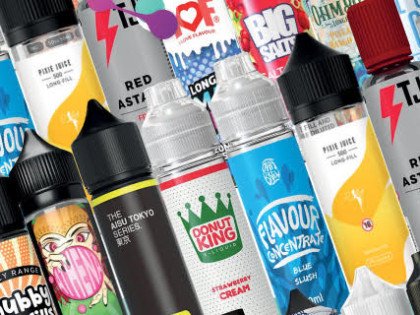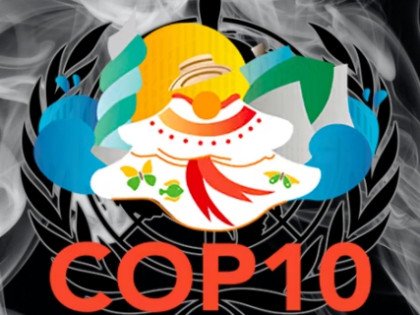Since 2006, The Union has been managing the Bloomberg Initiative bag of Michael Bloomberg’s cash in conjunction with the fervently anti-vape Campaign for Tobacco-Free Kids. They use the money to buy influence and change in national legislation and was recently lambasted for trying to usurp the political process in the Philippines.
INNCO(1) helps to coordinate the actions of 40 individual grassroots consumer advocacy organisations that strive to place tobacco harm reduction and common sense at the forefront of evidence-based policy formulation.
Last year, The Union put out a document calling citing the World Health Organization (WHO) stated that there is “insufficient independent evidence to support the use of [e-cigarettes] as a population-level tobacco cessation intervention to help people quit conventional tobacco use.”
“The Union shares WHO’s position,” it says – of course it does, it is behind the WHO’s opinion.
In its document(2), The Union lies and says industry targets teens (it doesn’t), that teens go on to use tobacco (they don’t), there is insufficient evidence vaping works (there is ample evidence it does) and a number of other fallacious claims.
INNCO has provided a biting response in English(3), French(4), Spanish(5) and Swahili(6). The report slams The Union for its “overly simplistic and impractical” ban proposals. It points out that limiting options will only increase the number of people smoking tobacco, inevitably leading to the creation of black markets and increases in crime.
"The hundreds of millions of people who smoke in these countries should have the ability to make decisions about safer nicotine products, particularly when their own health is on the line,” said Samrat Chowdhery, president of INNCO’s governing board. “Overly simplistic policy solutions, such as proposed bans on all ENDS and THR products by the Bloomberg Philanthropies-funded The Union, are being offered as a blunt and impractical tool for a situation that requires pragmatism and nuance, making meaningful and sustainable change more difficult.”
“A blanket ban in LMICs is a form of philanthropic colonialism, suggesting that these countries and their citizens cannot be trusted with any level of self-determination,” said Nancy Loucas of the Coalition of Asia Pacific Tobacco Harm Reduction Advocates, a grassroots alliance of tobacco harm reduction advocacy organisations. “Inhabitants are treated as second-class citizens, which is offensive. There is no benefit in limiting choice of safer nicotine products, but only the potential for increasing harm.”
INNCO’s top 10 reasons against banning safer nicotine products in LMICs are as follows:
- Bans are an overly simplistic solution to a complex issue and will not work
- Prioritising the banning of reduced harm alternatives over cigarettes is illogical
- Reduction and substitution are valid goals for smokers in LMICs
- People who smoke have the right to choose to reduce their own risk of harm
- Reduced harm alternatives can significantly contribute to the aims of global tobacco control
- Lack of research in LMICs is not a valid reason to ban reduced harm alternatives
- The prohibitionist approach in LMICs is outdated, unrealistic and condescending
- Bans will lead to illicit markets with increases in crime and no tax revenue
- Banning reduced harm alternatives leads people back to smoking and greater harm
- Blanket bans in LMICs are a form of “philanthropic colonialism”
Francisco Ordóñez, Asociacíon por la Reduccíon de daños del Tabaquismo Iberamérica, added: “Very few low- and middle-income countries have adopted even the most basic WHO- suggested MPOWER prevention measure. Policymakers should embrace harm reduction as a valid goal, particularly in LMICs where access to cessation programs is extremely limited. Replacing combustible tobacco with alternative nicotine products can significantly reduce the risk of harm by at least 95 percent. It works in industrialized nations and can do the same in LMICs.”
“Africa is home to some of the highest-ranked smoker countries on the planet,” said Joseph Magero, chairman of Campaign for Safer Alternatives, a pan-African non-governmental member organization dedicated to achieving 100 percent smoke-free environments in Africa. “While improving overall public health has made great strides in these regions, efforts to directly address smoking cessation and harm reduction strategies have lagged due to limited or no access to safer, non-combustion nicotine products. By denying smokers access to much safer alternatives while leaving cigarettes on the market, policymakers would leave only two options on the table – quit or die.”
References:
- The International Network of Nicotine Consumer Organisations - www.innco.org
- Where bans are best: why LMICS must prohibit e-cigarette and HTP sales to truly tackle tobacco - https://theunion.org/sites/default/files/2020-08/TheUnion_TobaccoControl_E-CigPaper_English_07.pdf
- 10 reasons why blanket bans of e-cigarettes and HTPs in low- and middle-income countries (LMICs) are not fit for purpose, English - https://innco.org/wp-content/uploads/2021/03/INNCO-LMIC-English.pdf
- French: https://cutt.ly/OzBAz5l
- Spanish: https://cutt.ly/uzBSHY9
- Swahili: https://cutt.ly/8zBSYno
Photo Credit:
Image by Josy Dom Alexis from Pixabay
Dave Cross
Journalist at POTVDave is a freelance writer; with articles on music, motorbikes, football, pop-science, vaping and tobacco harm reduction in Sounds, Melody Maker, UBG, AWoL, Bike, When Saturday Comes, Vape News Magazine, and syndicated across the Johnston Press group. He was published in an anthology of “Greatest Football Writing”, but still believes this was a mistake. Dave contributes sketches to comedy shows and used to co-host a radio sketch show. He’s worked with numerous start-ups to develop content for their websites.
Join the discussion
Harm Reduction For The Rich
The United Kingdom risks becoming a harm reduction country only for the wealthy, according to Michael Landl of the World Vapers’ Alliance
Longfills as an Alternative to Disposables
The disposable vape ban will impact many people, but there’s no reason to be concerned… Grab yourself a pod kit and a Longfill and you’ll be back to vaping the way you want to, just in a cheaper, more environmentally friendly and legal way.
COP10 is a Threat to Safer Nicotine Products
The EU obscures its position on low-risk alternatives to smoking before the WHO COP10 conference in Panama, starting Monday
Nicotine Is Not A Culprit
Planet of the Vapes has always encouraged smokers to use the quit product that works best for them, and snus is a product that seems to be unfairly blocked because it contains nicotine






-listing400.jpg)




